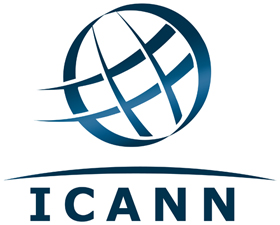|
their
registrar, the company's actions
could leave those registrants open
to legal action ranging from UDRPs
to lawsuits. Why? Because, as
Corwin points out, some of the
domains NetSol registered in their
customer's names are clearly trademark
infringing domains like DisneyTime.xyz.
So
being a Network Solutions customer
not only allows you to pay a registration
fee that is dramatically higher
than competitors (one black eye),
they now offer a potential
lawsuit against you at no extra
charge in the form of the free .XYZ
domain you never asked (another
black eye). If ICANN does what
they are supposed to do and
investigates what is going on,
NetSol could wind up with a broken
nose to go along with the two black
eyes and how could anyone feel sorry
for them?
As
Corwin notes, hundreds of other
new gTLDs are on their way. If
NetSol and .XYZ are allowed a pass how
many others are going to mimic
this kind of "marketing" -
stuffing the accounts of current
.com owners with domains they didn't
register, don't want and could get
in trouble for having in their
accounts?
|

|
This
has to be examined now
and if ICANN doesn't live up
to their duties as an
oversight body the mess
currently sitting on their
doorstep is going to move into
their executive suite. They
created the new gTLD
program and it is up to
them to keep it from
turning into a Frankenstein
monster running amok in
the global domain village by
allowing those seeking
shortcuts to use existing
registrants as pawns in their
sales game.
As
Corwin notes, currently unanswered
questions are ones that "the
Federal Trade Commission
(never a fan of the new
gTLD |
|
program)
or other national consumer
protection agencies, as well
as states’ attorney general,
might want to investigate, especially
if ICANN doesn’t move
quickly." |
Corwin's
piece is a serious one that
deserves widespread attention. It
will take more time to digest than
the Tweet-sized bites many of us
have become used to in this age of the
short attention span, but if
you consider yourself a professional
in this business (or hope to be one)
it should be considered must
reading. In the closing
summary of the article Corwin wrote:
There’s
a lot more at stake in this
situation than which registry has
the most registrations. There are
significant contract compliance and
consumer protection issues,
compounded by possible involuntary
trademark infringement. Thousands of
registrants are directly affected,
and all registrants are
potentially at risk. Can it
really be permissible for any ICANN-accredited
registrar to involuntarily assign
new gTLD domains to existing
customers on an opt-out basis, given
the substantial potential legal
liability that accompanies domain
registrant status? If that is
permitted then we could see hundreds
of thousands or even millions of
involuntary domain registrations
occur over the coming months as
hundreds of new gTLDs become
available to the general public.
Aside from the risks to
“registrants”, such a
development could substantially
erode the public perception and
reputation of the entire new gTLD
program – and of ICANN.
It
should be as simple as ABC for ICANN
to realize it needs to step up to
the plate and take responsibility
for initiating a full inquiry and
report on what has transpired in the
initial .XYZ registration phase. The
answers are important for
registrants, for registrars who
don’t engage in opt-out
registration practices, and for the
other operators of new gTLD
registries who are busy trying to
create value that attracts willing
registrants.
It’s
also of immense consequence for
ICANN’s own reputation as a
critical time in its history. As the
community is beginning to deliberate
on enhanced accountability measures
to accompany the IANA functions
transition, it would be exceedingly
useful for ICANN to demonstrate that
it can act of its own volition and
investigate suspicious situations
involving contracted parties — and
hold them duly accountable if
transgressions are found.
|